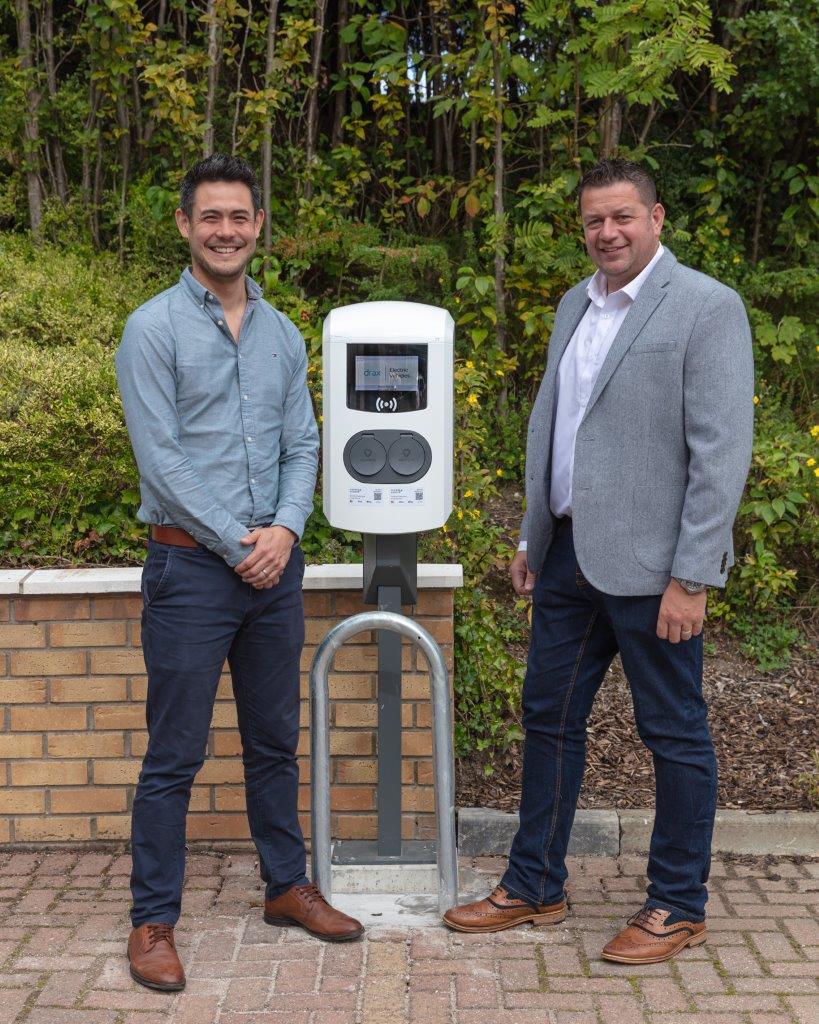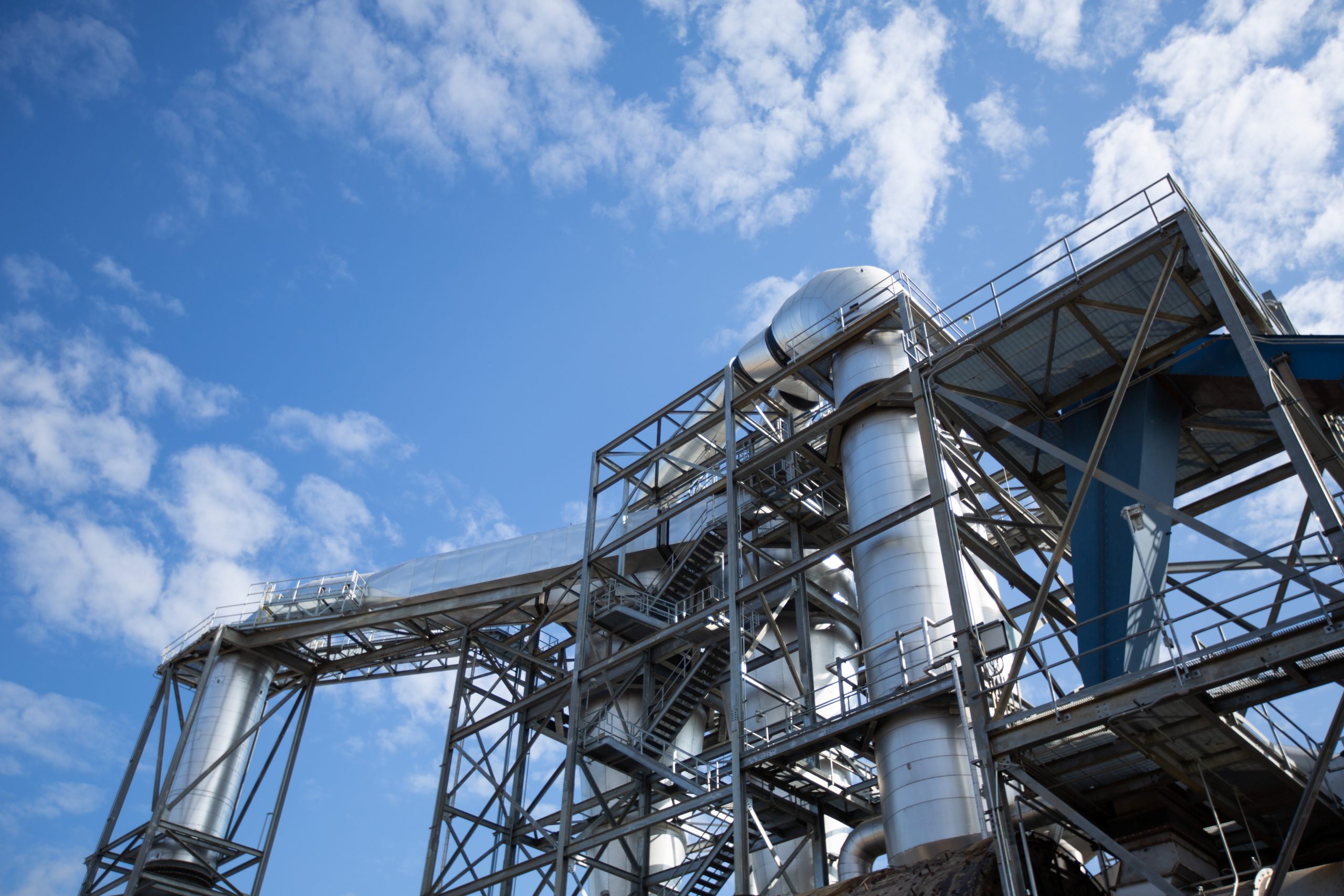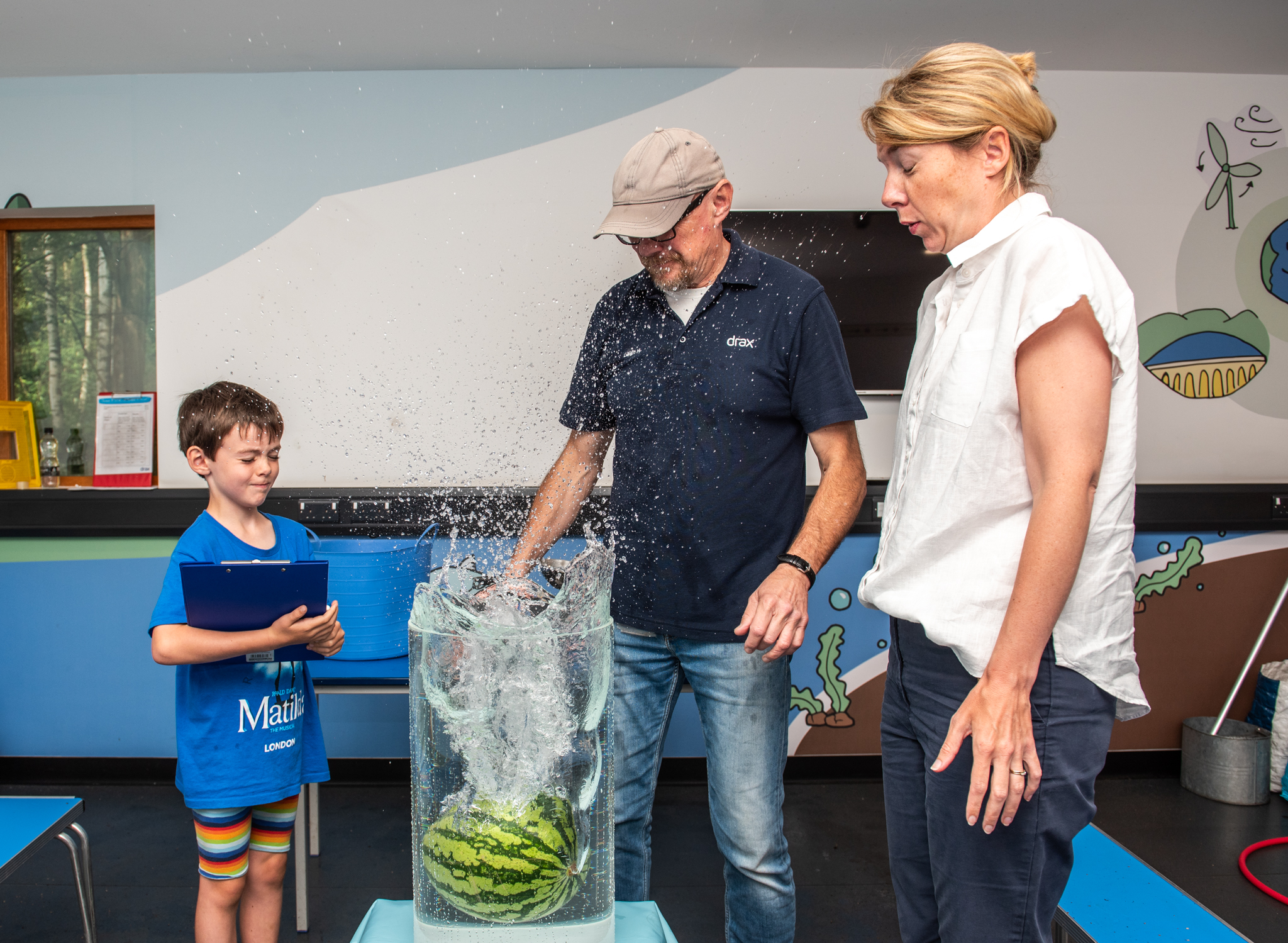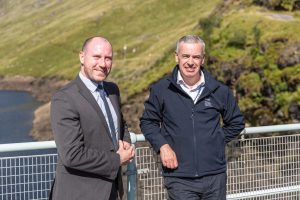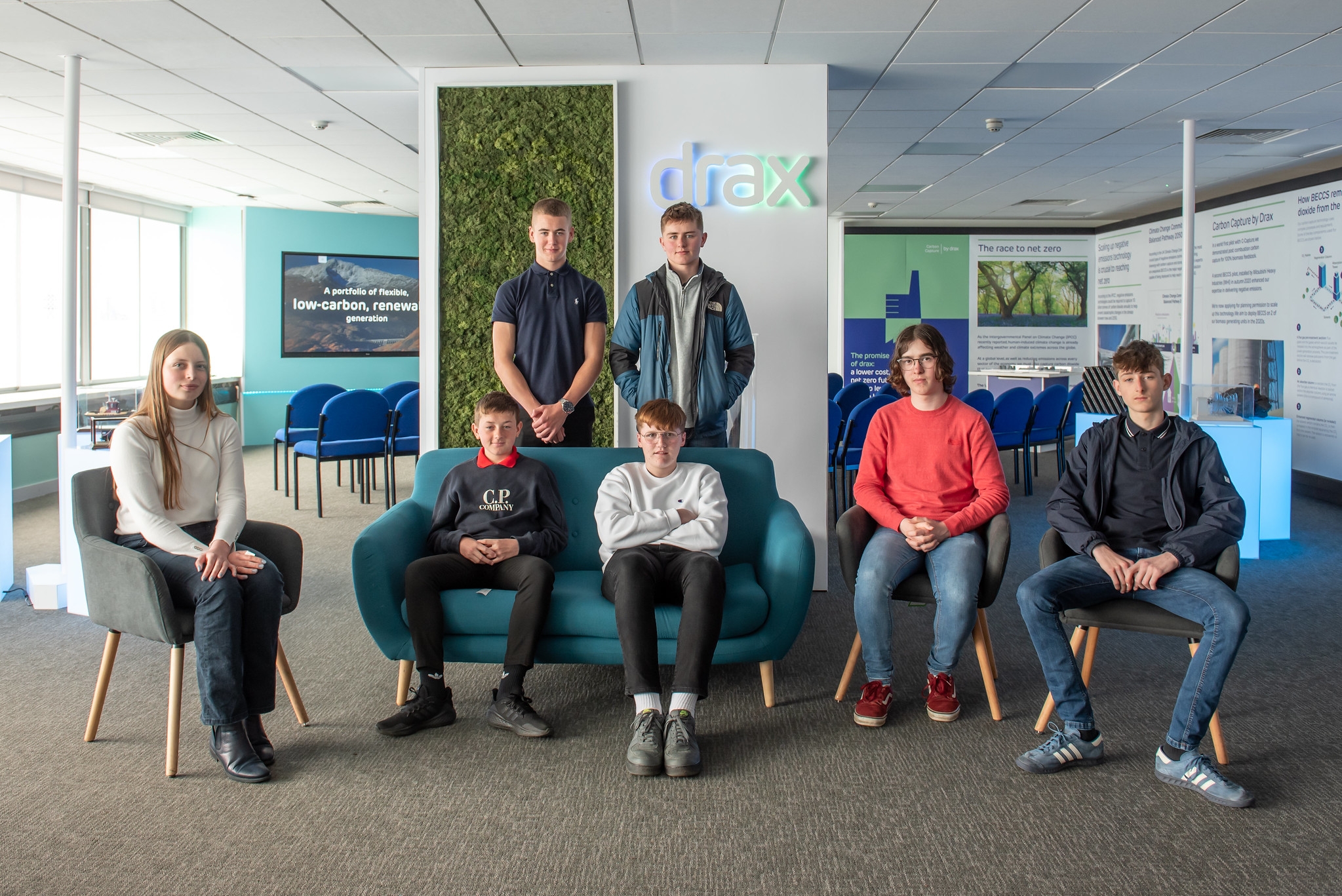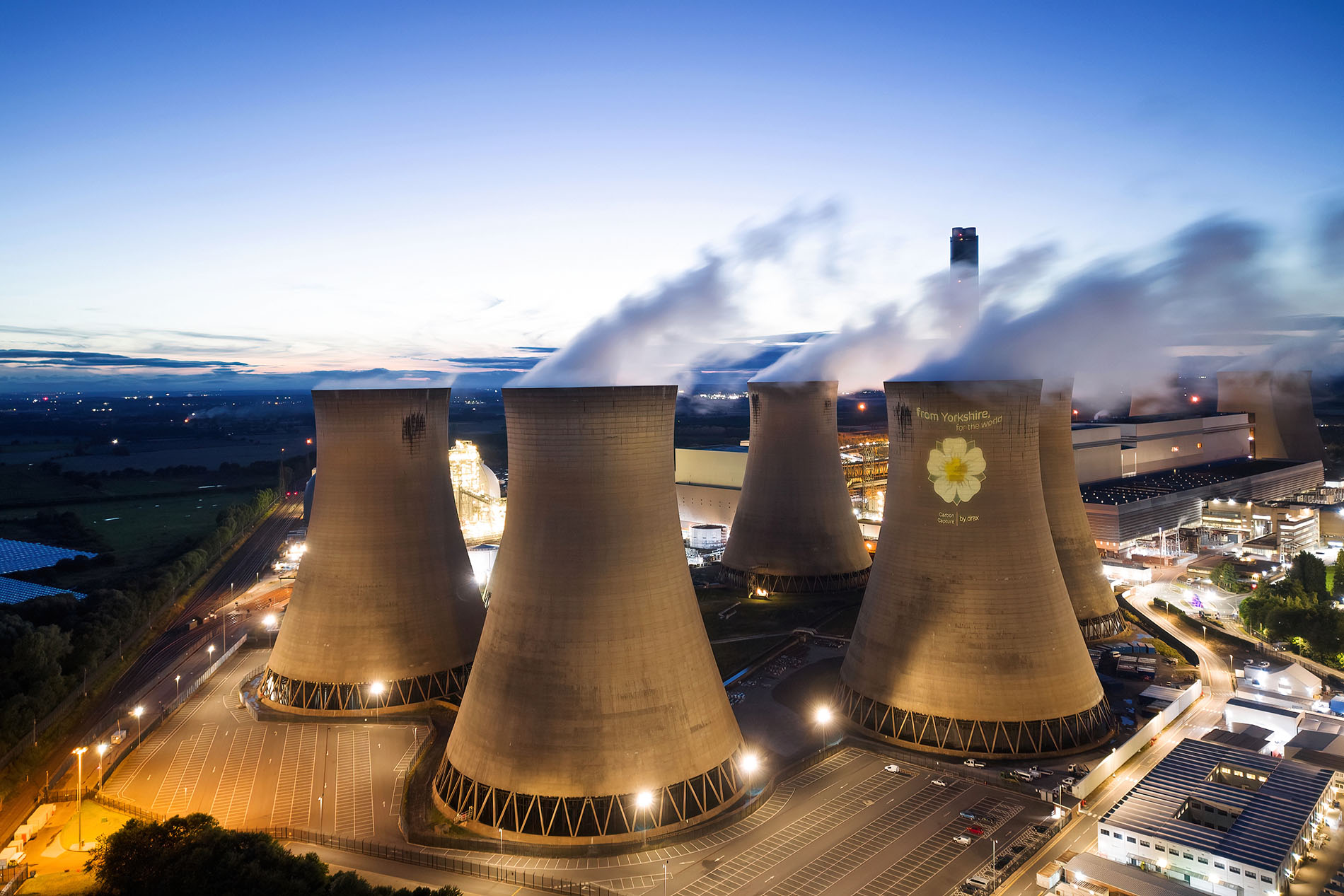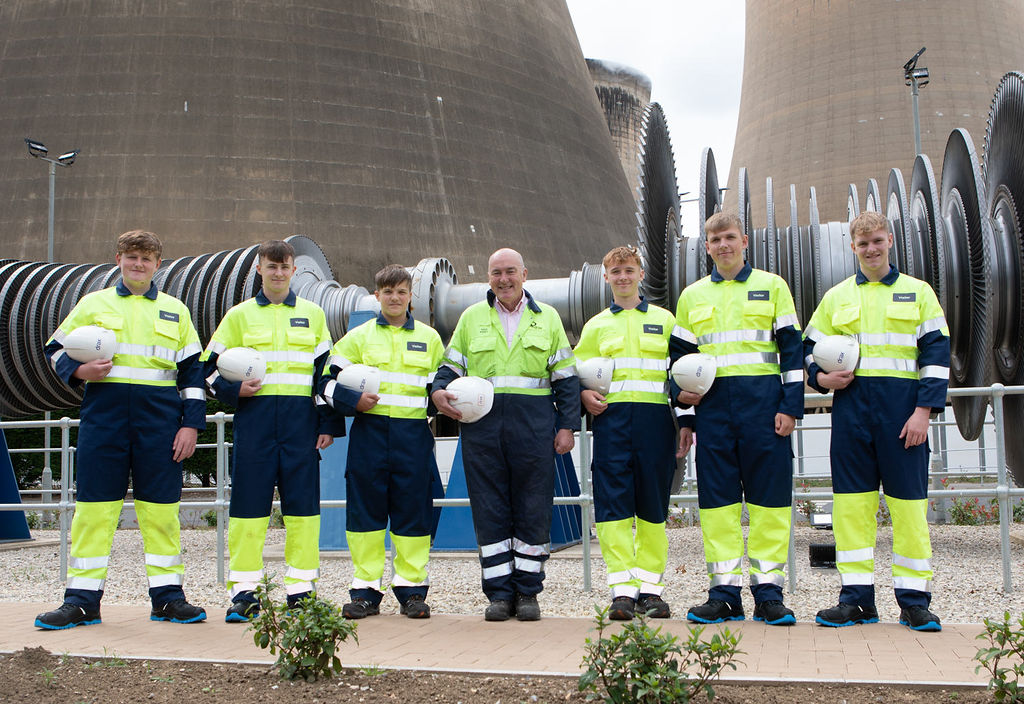
The apprentice engineers have won places on the technical apprenticeship scheme at Drax Power Station near Selby in North Yorkshire – the UK’s single-largest generator of renewable power, which produces enough renewable electricity for four million homes.
The four-year programme gives new recruits the opportunity to gain expertise working alongside the world-class engineers at the plant. Drax Power Station has been transformed over the last decade as part of Europe’s largest decarbonisation project, swapping coal to generate renewable electricity using sustainable biomass.
Drax has ambitious plans to go even further in the years ahead, aiming to become carbon negative by using bioenergy with carbon capture and storage (BECCS) technology. Its plans would see the site capture up to 8 million tonnes of carbon dioxide every year.
Sean Barry, Head of Decommissioning and BECCS Operations, said:
“It was fantastic to welcome our new group of apprentices to Drax Power Station. Providing these young people with the skills required for a successful career in engineering is not only essential to the success of our business, but it is also an incredibly rewarding part of what we do.
“Giving our apprentices the opportunity to work on the cutting-edge, environmental technologies of the future will ensure we’re nurturing our in-house talent and creating opportunities for people here in Yorkshire to lead the green energy transition to net zero.”
Thomas Goulden, aged 18, from Brayton said:
“This is such an exciting opportunity to develop my engineering future with Drax. It will give me a real sense of pride and ownership to contribute to Drax’s ambition to become a carbon negative company by the year 2030, and to play a part in this leading-edge sustainable technology.
“The opportunity will allow me to fulfil my engineering motivations and give me valuable hands-on experience. A huge appeal for me is to learn via feedback from experienced engineers, so I can continually develop, gain confidence as I progress.”
Mason Thomas, aged 16, from Thorne, said:
“This apprenticeship means a great deal to me due to the fact the world needs change and Drax are currently driving this. This makes me proud to be a part of the business and motivates me to work towards these amazing standards that the team here at Drax have set.”
The apprentices beginning their careers at Drax Power Station this year are:
- Sam Howdle – Technical Apprentice – 17
- Lewis Bennett – Technical Apprentice – 16
- Harvey Clough – Technical Apprentice – 16
- Jak Bennett – Technical Apprentice – 16
- Thomas Goulden – Technical Apprentice – 18
- Mason Thomas – Technical Apprentice – 16
In addition to engineering roles, Drax also offers apprenticeships in business support areas such as HR, IT, and facilities departments.
ENDS
Photo Caption:
- Drax apprentice engineers and Sean Barry, Head of Decommissioning and BECCS Operations at Drax Power Station in Selby, North Yorkshire.
Media contacts:
Sloan Woods
Media Manager
E: Sloan.johnson@drax.com
T: 07821665493
About Drax
Drax Group’s purpose is to enable a zero carbon, lower cost energy future and in 2019 announced a world-leading ambition to be carbon negative by 2030, using bioenergy with carbon capture and storage (BECCS) technology.
Drax’s around 3,000 employees operate across three principal areas of activity – electricity generation, electricity sales to business customers and compressed wood pellet production and supply to third parties. For more information visit www.drax.com
Power generation:
Drax owns and operates a portfolio of renewable electricity generation assets in England and Scotland. The assets include the UK’s largest power station, based at Selby, North Yorkshire, which supplies five percent of the country’s electricity needs.
Having converted Drax Power Station to use sustainable biomass instead of coal it has become the UK’s biggest renewable power generator and the largest decarbonisation project in Europe. It is also where Drax is piloting the groundbreaking negative emissions technology BECCS within its CCUS (Carbon Capture Utilisation and Storage) Incubation Area.
Its pumped storage, hydro and energy from waste assets in Scotland include Cruachan Power Station – a flexible pumped storage facility within the hollowed-out mountain Ben Cruachan.
The Group also aims to build on its BECCS innovation at Drax Power Station with a target to deliver 4 million tonnes of negative CO2 emissions each year from new-build BECCS outside of the UK by 2030 and is currently developing models for North American and European markets.
Pellet production and supply:
The Group has 19 operational pellet plants and developments with nameplate production capacity of around 5 million tonnes a year.
Drax is targeting 8 million tonnes of production capacity by 2030, which will require the development of over 3 million tonnes of new biomass pellet production capacity. The pellets are produced using materials sourced from sustainably managed working forests and are supplied to third party customers in Europe and Asia for the generation of renewable power.
Drax’s pellet plants supply biomass used at its own power station in North Yorkshire, England to generate flexible, renewable power for the UK’s homes and businesses, and also to customers in Europe and Asia.
Customers:
Drax supplies renewable electricity to UK businesses, offering a range of energy-related services including energy optimisation, as well as electric vehicle strategy and management.
To find out more go to the website www.energy.drax.com










